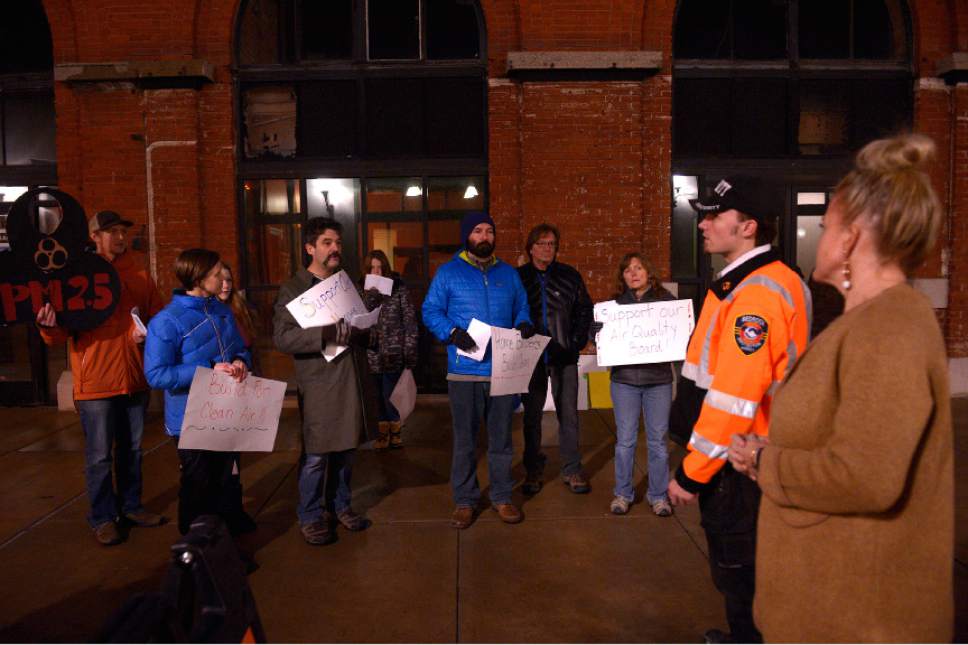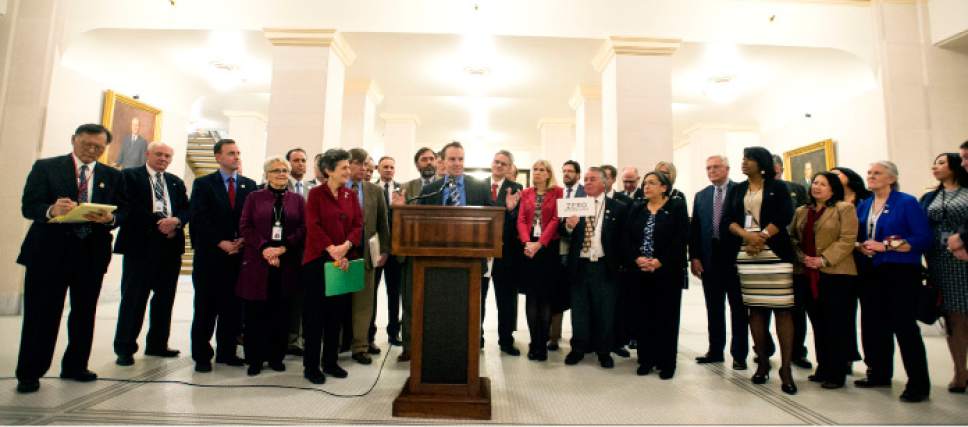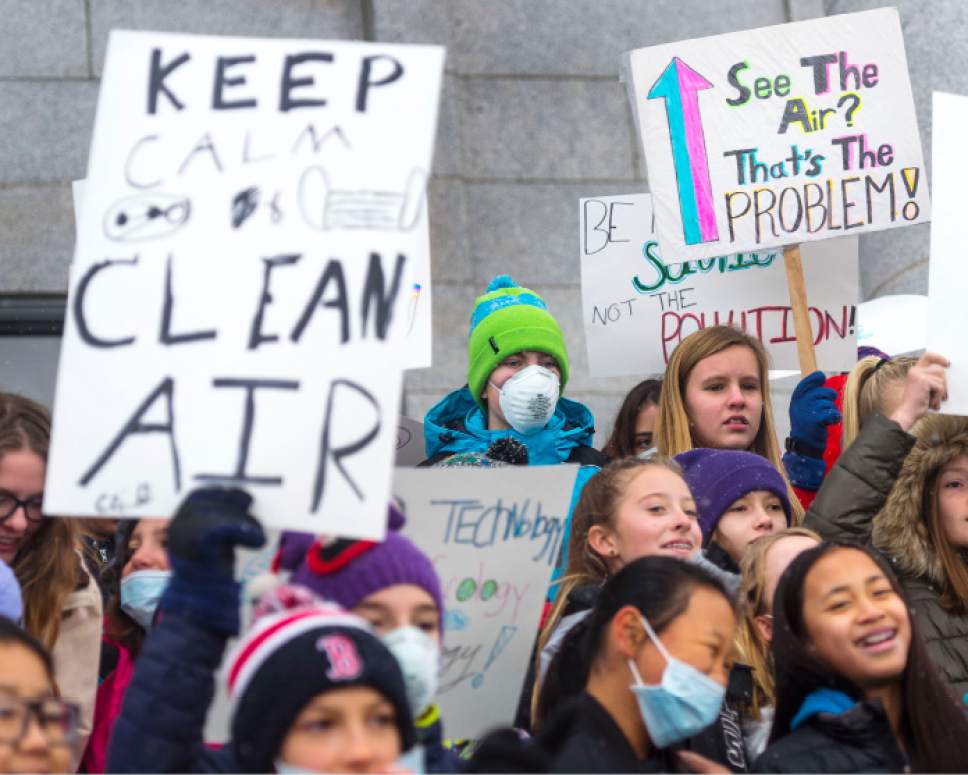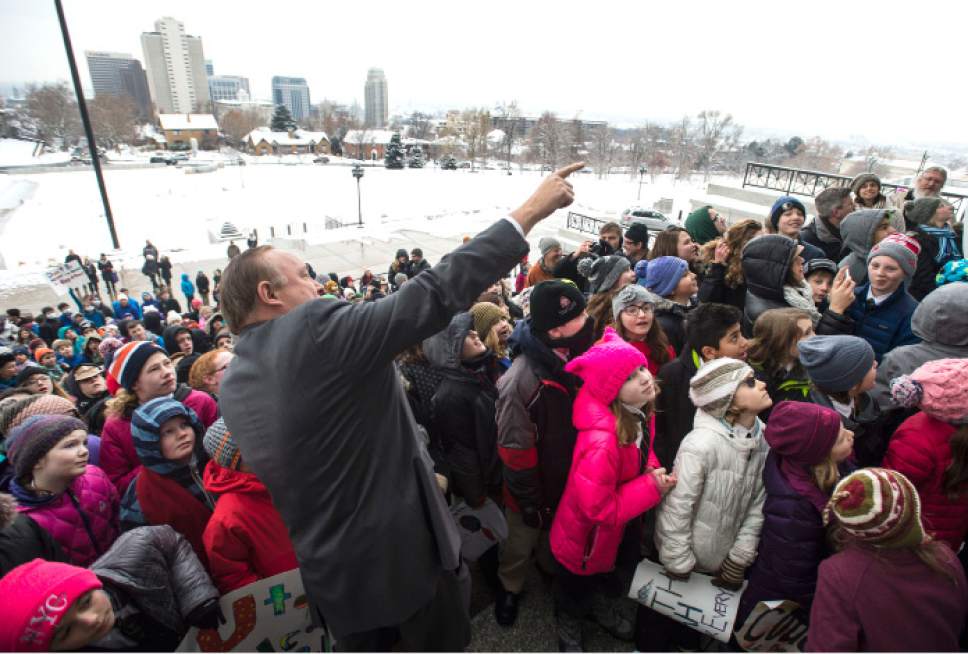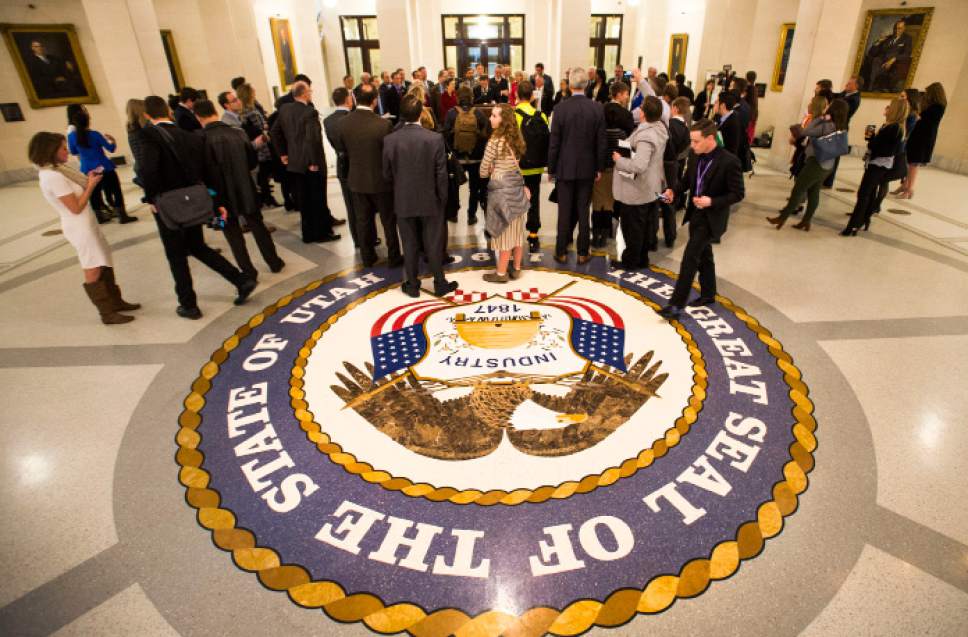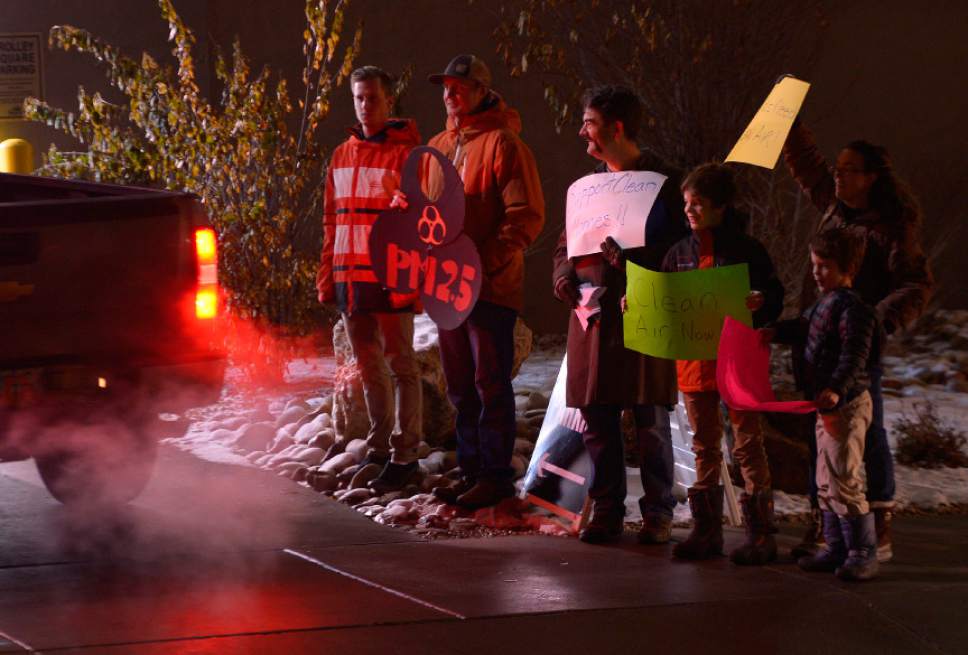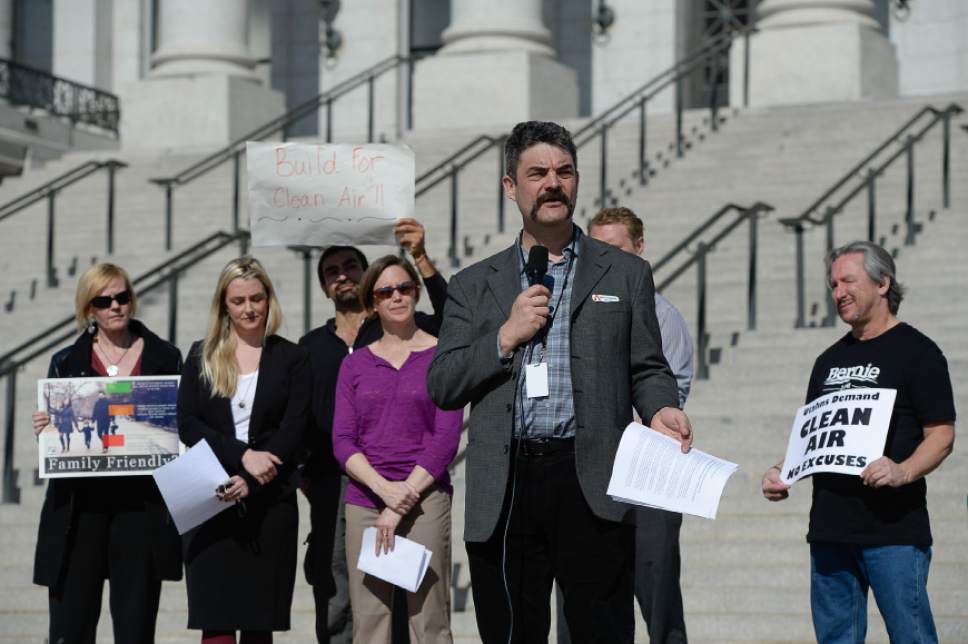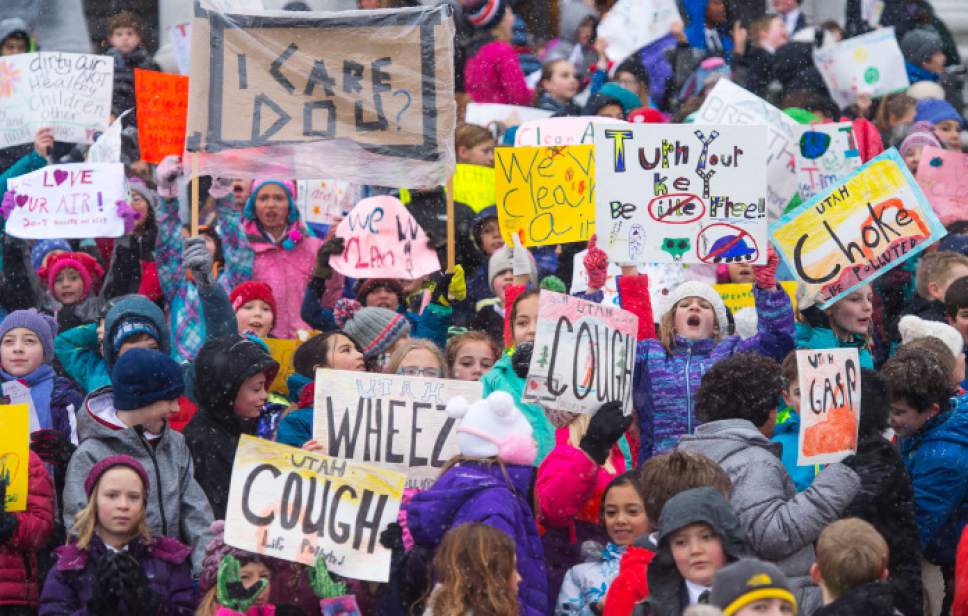This is an archived article that was published on sltrib.com in 2017, and information in the article may be outdated. It is provided only for personal research purposes and may not be reprinted.
State regulators and environmental advocates praised Utah lawmakers' late approval of spending $1.3 million for new air quality sensors, but their reviews were otherwise mixed.
"Overall it was a somewhat disappointing session," said Matt Pacenza, executive director of HEAL Utah, a nonprofit that lobbies for clean air policy. "But we're grateful given the political context that we have some positive achievements to point to."
Though probably the most significant environmental issue of this year's session, the Division of Air Quality's request for air monitoring funding — $1.3 million one-time to upgrade the department's network and $150,000 ongoing for maintenance — did not draw approval until Wednesday, a day before the adjourning gavel fell.
Alan Matheson, executive director of the Utah Department of Environmental Quality, said the spending would repair the agency's aging air monitors, now unreliable and prone to periodic failure even during some of the state's worst seasonal pollution episodes.
The department did not, however, receive $123,000 that was requested to pay costs associated with algal blooms, while a little under $250,000 of the DEQ's budget savings from last year was trimmed. The Division of Water Quality currently does not have a budget dedicated to algal bloom response. Without those funds, Matheson said, the department will struggle to identify future toxic algae threats in a timely manner.
"Last year we spent $130,000 that wasn't budgeted," he said. "We had to take from core programs in the agency, and that's just not something we can sustain. We don't have any extra money to do that again."
Legislators passed nonbinding resolutions urging restoration of Utah Lake and calling on the state's water managers to find sustainable solutions to Utah's algae problem.
Action on vehicle emissions — a key contributor to the state's seasonal inversions — unfolded on several fronts.
Lawmakers passed bills to enable the state to accept the $35 million it expects to receive as part of the U.S. Environmental Protection Agency's settlement with Volkswagen over its cheating on emissions testing. That money could be spent only on projects that would reduce vehicle emissions.
A proposal to extend tax credits for electric vehicles failed in February while another bill, holding what several said was wide potential for reducing air emissions, didn't even get a vote. HB134, requiring emission inspections for diesel vehicles in all Utah counties that do not meet federal air quality standards, died of inaction in the Senate.
"It's one thing to lose a vote," Pacenza said. "It's like, the people's representatives have spoken. But when something doesn't even get a vote, that's maddening."
Ashley Miller, program director for Breathe Utah, an advocacy group focused on air quality, saw a positive surprise in passage of SB197. No one expected to get tax incentives to push Utah's refineries toward lower-emission Tier 3 fuel standards, she said.
She also lauded a bill to create an Air Quality Policy Advisory Board to advise legislators in the future. But she and others continue to urge Gov. Gary Herbert to veto HB65, which would prevent the state from regulating wood smoke when it is a byproduct of food production.
HEAL Utah had opposed plans to phase out Utah's residential solar tax credits, but Pacenza still called legislators' compromise on how those incentives decline each year through 2021 "a great improvement."
And he said he was encouraged to see at least one resolution on climate change get a hearing during the session, even though it failed to get out of committee.
Twitter: @EmaPen


